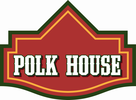Polk House
|
The life and vision of Colonel L.L. Polk
Moving the Polk House, November 12, 2000
|
Agrarian leader, editor, and first North Carolina Commissioner of Agriculture, Leonidas L. Polk was born on April 24, 1837 in Anson County. He was the son of Andrew and Serena Autry Polk. By age fifteen, Leonidas lost his father and mother. Their estate was divided between him and three half-brothers, with young Polk’s share being 353 acres. Polk was educated in the local schools and at nearby Davidson College. In 1857, Polk married Sarah Pamela Gaddy of Anson County; they had six children. In 1860, Polk was elected to the North Carolina State House as a Whig Unionist. Like most Whigs, he only advocated secession after President Abraham Lincoln (1809-1865) in April 1861 issued a call for troops to quell the states that formed the Confederate States of America and bring them back into the Union. As a state representative, Polk chaired a joint committee that created the state militia that he soon led as a commissioned colonel. (He was known thereafter as Colonel Polk.) In May 1862, he joined the 26th North Carolina Regiment as a private; he was later promoted to the rank of sergeant-major. Later that year, he transferred to the 43rd Regiment. Returning to North Carolina after the war, he founded the town of Polkton, incorporated in 1875, where he started a weekly newspaper called The Ansonian. Through it he advocated for farmers and for the Grange movement. Polk, a distant relative of President James K. Polk, became active in state politics, serving in the North Carolina House of Representatives and as a delegate to the state constitutional convention in 1865–66. In 1877, he was appointed the first North Carolina Commissioner of Agriculture and served until 1880. An agricultural collection he established as Commissioner was the basis for what became the North Carolina Museum of Natural Sciences. In the late 1880s, Polk rose to national prominence through his leadership of the state and national Farmers' Alliance, which had begun in Texas. He became its national vice president in 1887 and its president in 1889. These words, spoken in 1887, were typical of Polk's rhetoric: "Our farmers buy everything to raise cotton, and raise cotton to buy everything, and, after going through this treadmill business for years, they lie down and die and leave their families penniless." The Alliance's mixed record using traditional two-party politics paved the way for the Populist Party, or People's Party. Polk presided over the meeting in February 1892 that formally created the party. The Populists likely would have nominated Polk for U.S. president in 1892 (see U.S. presidential election, 1892), but he died unexpectedly in Washington, D.C. on June 11, 1892. He was one of the first inductees into the North Carolina Agricultural Hall of Fame. The Polk House was family-owned until the mid-1960s when it was purchased by the State of North Carolina. The home was listed on the National Register of Historic Places in 1977. It was moved on Nov. 12, 2000, to its current home on Blount Street in Raleigh. The Leonidas LaFayette Polk House Foundation uses the house for the Polk Museum. |
|
Purchase Your Ticket
|
Ticket Pricing $125 per person
|
